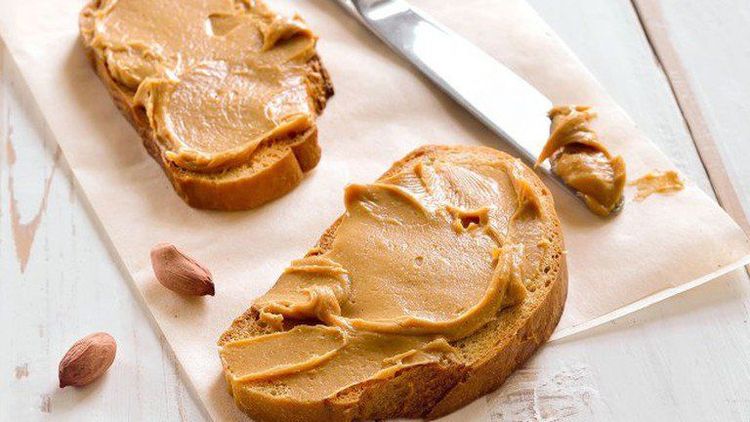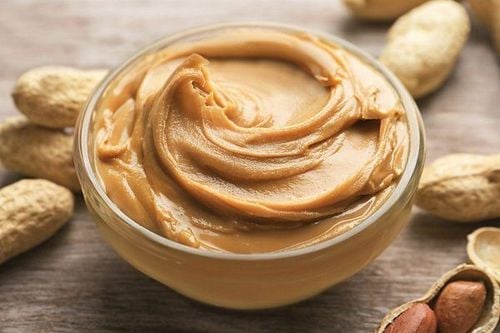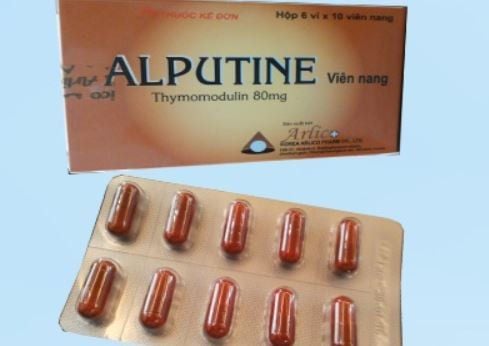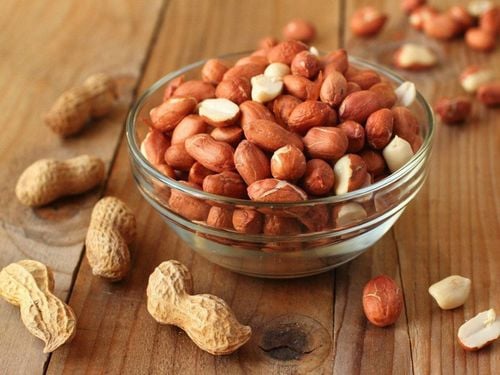This is an automatically translated article.
Peanut allergy is one of the most common types of food allergy and the leading cause of death from food reactions in the United States. If your child is at high risk for a peanut allergy, a new peanut allergy treatment may be good news.1. The number of children with peanut allergy is increasing
Peanut butter sandwiches are really a very popular dish among students at home and at school. However, the rate of children with peanut allergies has doubled in Western countries over the past 10 years. Furthermore, it is the leading cause of food allergy-related death in the United States. As a result, more and more parents, school cafeterias, and extracurriculars have also stopped offering peanut-based treats.In addition to being an increased risk of serious choking, peanuts, and those made with them, such as peanut butter, can lead to severe allergies in some children.

Bơ đậu phộng là nguyên nhân gây tử vong hàng đầu liên quan đến dị ứng thực phẩm
2. New Research on Peanut Allergy Treatments
Scientists have almost found a treatment that makes it possible for most children with this life-threatening condition to tolerate small amounts of peanuts. While it's not an official peanut allergy treatment, it can make everyday life much easier for children at risk of a serious reaction to even small amounts of peanuts. in food.Specifically, children will be able to consume a small amount of peanut protein in capsules, by sprinkling on food every day for several months. The goal is for the patient to desensitize to peanuts over time. The results of the clinical trial showed that, after doing this method for about 1 year, two-thirds of the 372 children involved could eat 2 peanuts/peanuts without an allergic reaction.
Not all children respond to this method. About 12% of the children enrolled in the trial dropped out of the capsules because of side effects. Of the remaining children, however, only 4% had a severe allergic reaction to peanut exposure at the end of the study. The results were published in the New England Journal of Medicine.
Children participating in the trial must continue to avoid all other peanut products in their diet, carry an epinephrine syringe in case of an emergency, and rest for 2 hours (no sleep) after each treatment. treat. About 14% of the children participating in the treatment received epinephrine during the trial period.
Aimmune Therapeutics company conducting the experiment is still waiting for FDA approval to produce this peanut protein drug to market. To date, there is no information about the cost of the treatment, or whether the drug is covered by insurance plans.

Hiện nay, các nhà khoa học gần như đã tìm ra phương pháp điều trị, giúp hầu hết trẻ em mắc phải tình trạng đe dọa tính mạng này có thể dung nạp một lượng nhỏ đậu phộng
3. How to prevent your child from having a peanut allergy?
Years ago, experts thought that the best way to combat a peanut allergy was to avoid peanut products during the first few years of life. In 2000 through 2008, the American Academy of Pediatrics (AAP) recommended that children at high risk for peanut allergy (family history of other food allergies or eczema) should not eat the product. peanuts before 3 years old. But this recommendation did not help and was discontinued in 2008.Around that time, experts in the UK studied about 600 infants with severe eczema or egg allergies - believed to have high risk of peanut allergy. They divided them into two groups: one was fed regular smooth peanut butter, the other was told to stay away from foods containing peanuts.
The study was carried out until the children were 5 years old. At the end of the trial, only 3% of children who ate peanut products were allergic - compared with 17% of children who didn't eat peanuts and had an allergy.
When this study was published, the National Institute of Allergy and Infectious Diseases, as well as the AAP, endorsed guidelines for dividing infants into 3 groups:
Severe eczema (persistent or recurrent eczema requiring frequent prescription cream) and/or egg allergy: It's a good idea to get tested for a peanut allergy and ask your doctor early on about how and when to give your baby peanut products (usually 4-6 months). If the result is positive, the baby should have the first taste of peanut products at the doctor's office. Mild to moderate eczema: No testing is needed, but it's still a good idea to talk to your doctor about your child's situation and needs. These babies should try peanut products around 6 months of age. No eczema or food allergies : Peanut products can be used with other foods depending on family preferences and cultural practices. It is very important that parents do not give their children whole peanuts or pieces to avoid choking. Finely ground peanut butter, peanut butter snacks or foods are better.

Nên cho trẻ ăn bơ đậu phộng nghiền mịn thay vì đậu phộng nguyên hạt
Vinmec International General Hospital is the address for receiving and examining respiratory diseases that infants and young children are susceptible to: viral fever, bacterial fever, respiratory infection, pneumonia in children, .... With modern equipment, sterile space, minimizing the impact as well as the risk of disease spread. Along with that is the dedication from the doctors with professional experience with pediatric patients, making the examination no longer a concern of the parents.
Please dial HOTLINE for more information or register for an appointment HERE. Download MyVinmec app to make appointments faster and to manage your bookings easily.
Reference source: babycenter.com












